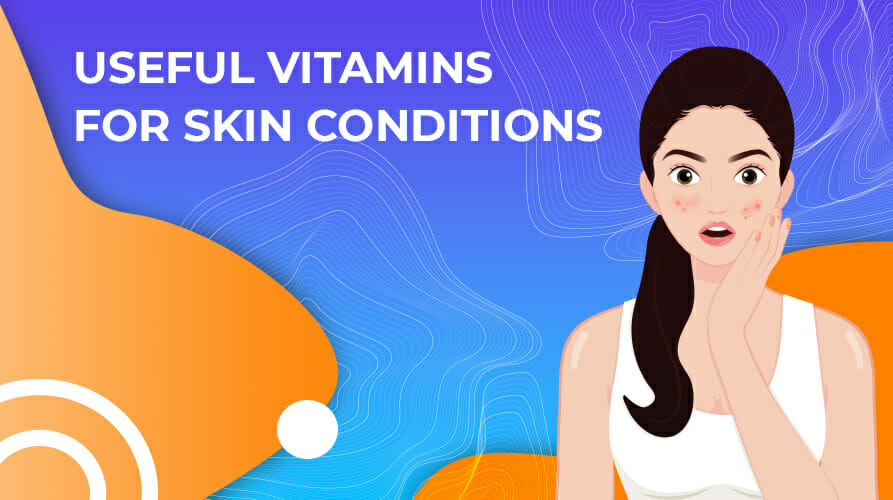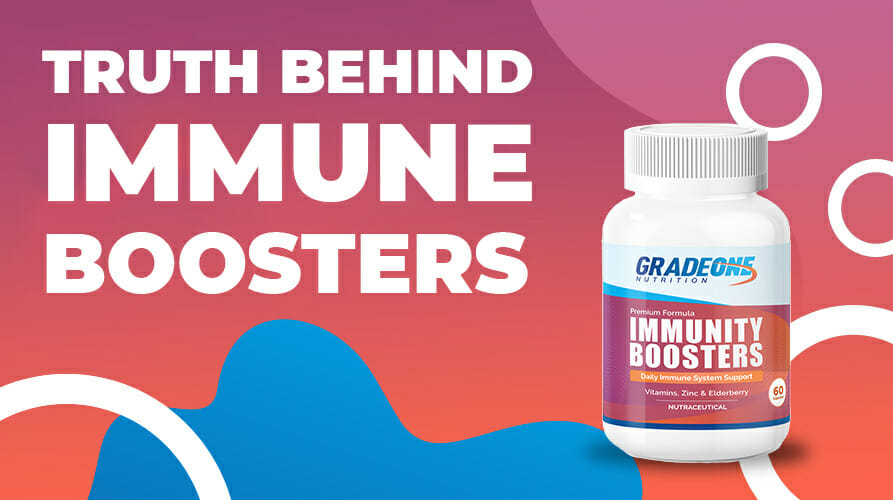Taking the right vitamins for skin is very essential. After all, it is the largest organ of our body. Everyone wants to apply high-quality products to their skin. They often forget that our skin requires the right balance of nutrients too. As they have a great impact on our appearance.
Many medical researchers say that to achieve amazing skin health, it becomes necessary to feed it from the inside. Here comes the role of vitamins for skin. The deficiency of any of these vitamins can cause common skin conditions such as dryness, wrinkles, breakouts, etc.
So we have curated a list of vitamins for skin conditions that you can incorporate into your routine. And how they can benefit your skin.
Vitamins for skin health
Vitamins or micronutrients are naturally happening components that a human body requires to function normally. And among many of their functions are to boost skin well-being. They check that the skin along with our overall body remains healthy.
Malnourishment or vitamin deficiency can cause common skin issues. Thus, it is advised to consume a diverse and nutrient-rich diet. Or take vitamins as a supplement. Because sometimes the nourishment that we get from our foods are not sufficient.
Vitamin C
Vitamin C provides a plethora of functions. It acts as an antioxidant that prevents damage to skin cells caused by free radical damage. Besides that, this vitamin also supports collagen production. Collagen is the body’s natural protein that aids in strong muscles and prevents the skin from sagging.
Deficiency of Vitamin C can cause:
- Rough skin
- Wrinkles
- Red spots on the skin
Food items rich in Vitamin C:
- Citrus foods like orange
- Lemons
- Chili peppers
- Thyme or ajwain
Vitamin D
Vitamin D (the sunshine vitamin) is built when our skin is exposed to sunlight. It assists in balancing skin cell metabolism and repairing skin tissues themselves. Vitamin D also controls skin tone and pigmentation.
Deficiency of Vitamin D can cause:
- Slow healing of wounds
- Skin aging
- Intensive skin pigmentation
- Skin Inflammation
Food items rich in Vitamin D:
- Fortified food such as bread, eggs, milk
- Orange juice
- Fish, trout & Salmon
- Mushrooms
Vitamin E
There’s a lot of talk about Vitamin E in the beauty industry. Vitamin E is among the most beneficial vitamins for skin. It guards the skin against radical damages, especially from UV rays and boosts skin hydration. This UV benefit is called photoprotection. It refers to the body’s ability to reduce the harm caused by the sun’s rays.
Deficiency of Vitamin D can cause:
- Dark spots & Wrinkles
- Dry skin
- Inflammation
Food items rich in Vitamin E:
- Plant-based oils like sunflower, peanut, etc
- Nuts like almonds & peanuts
- Spinach
- Avocado
Vitamin K
Not many of you have heard about Vitamin K. It has just started to gain attention in the skincare world. Vitamin K is fat-soluble that is stored in our body fats. It is known for its healing abilities and works well on stretch marks. It also maintains skin elasticity.
Deficiency of Vitamin K can cause:
- Slow healing of wounds
Food Items rich in Vitamin K:
- Green leafy veggies like lettuce, spinach, cabbage
- Kiwi
- Chicken
Vitamins for skin: supplements or diet?
Vitamin supplements are not vitamin replacement. They only supplement a portion of your body’s nourishment needs. It brings you one step closer to your vitamins goal. The rest of the race should be run by your food intake. However, doctors recommend a daily intake of important minerals and vitamins for skin and overall health as supplements.
Vitamin supplements come in different forms- immunity boosters, biotin, collagen powder, multivitamins, etc. They provide a one-stop solution to your dietary problems. It may be difficult to have meat, eggs, or nuts daily. But it is easier to take all of them in the form of a capsule.
A supplement like an immunity booster can include all of your body’s nutritional needs, as different food items may be incapable of doing so. It contains Vitamin C, zinc, and other profound skin-friendly ingredients. A booster contains all the vitamins for skin health.
Finally, rely on diet and supplements both. A doctor’s recommendation is much needed if you experience any serious skin or other illness.


